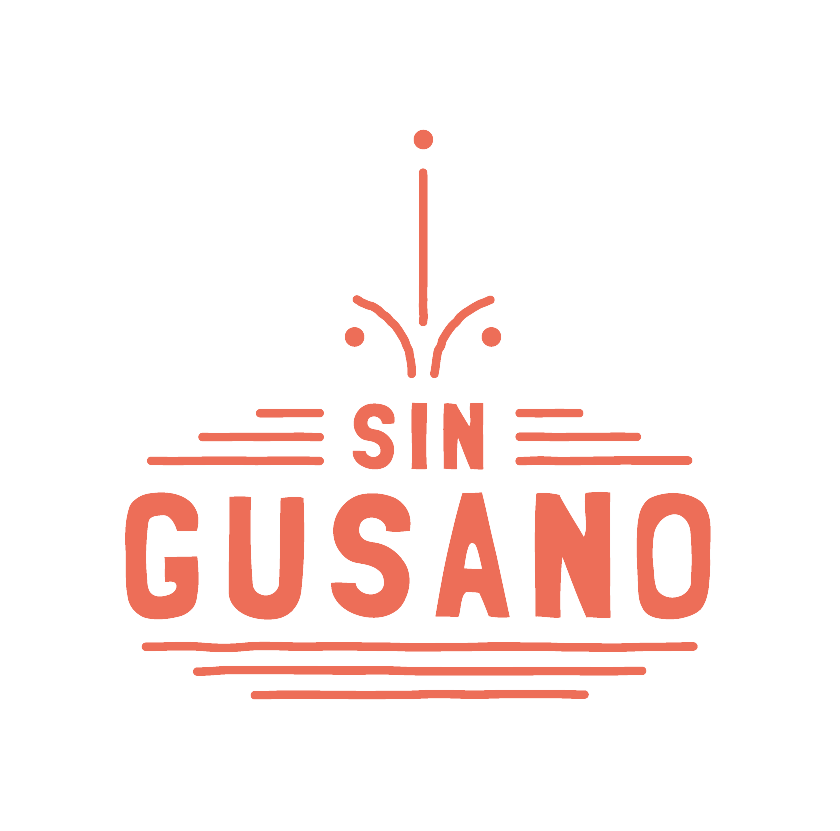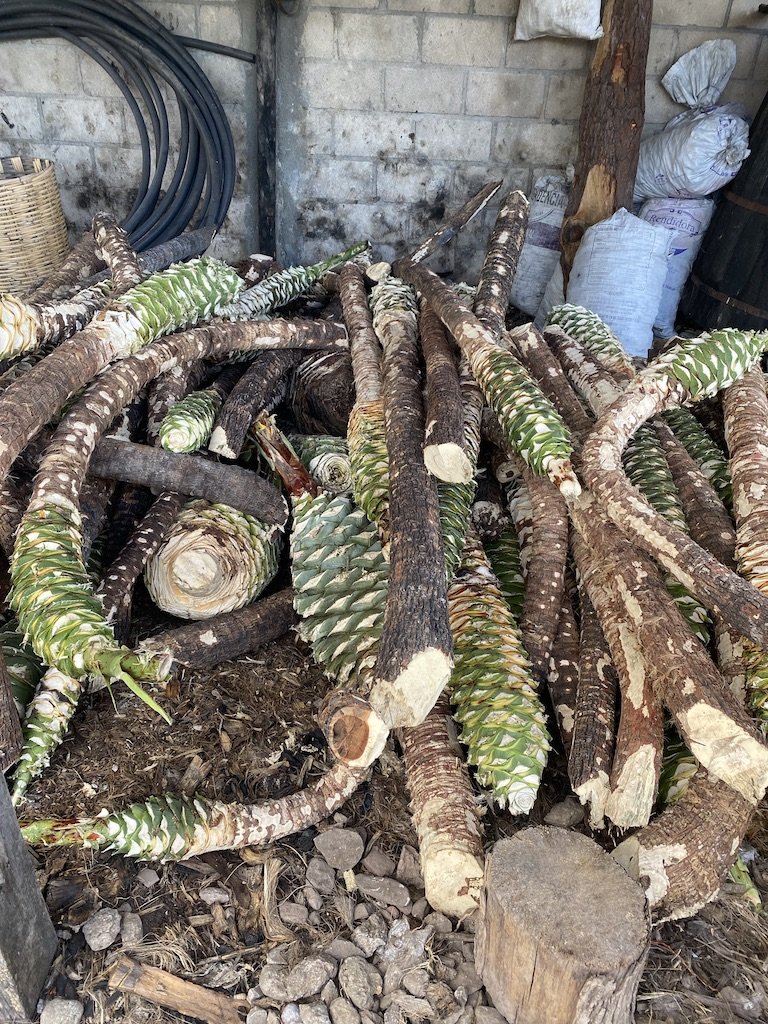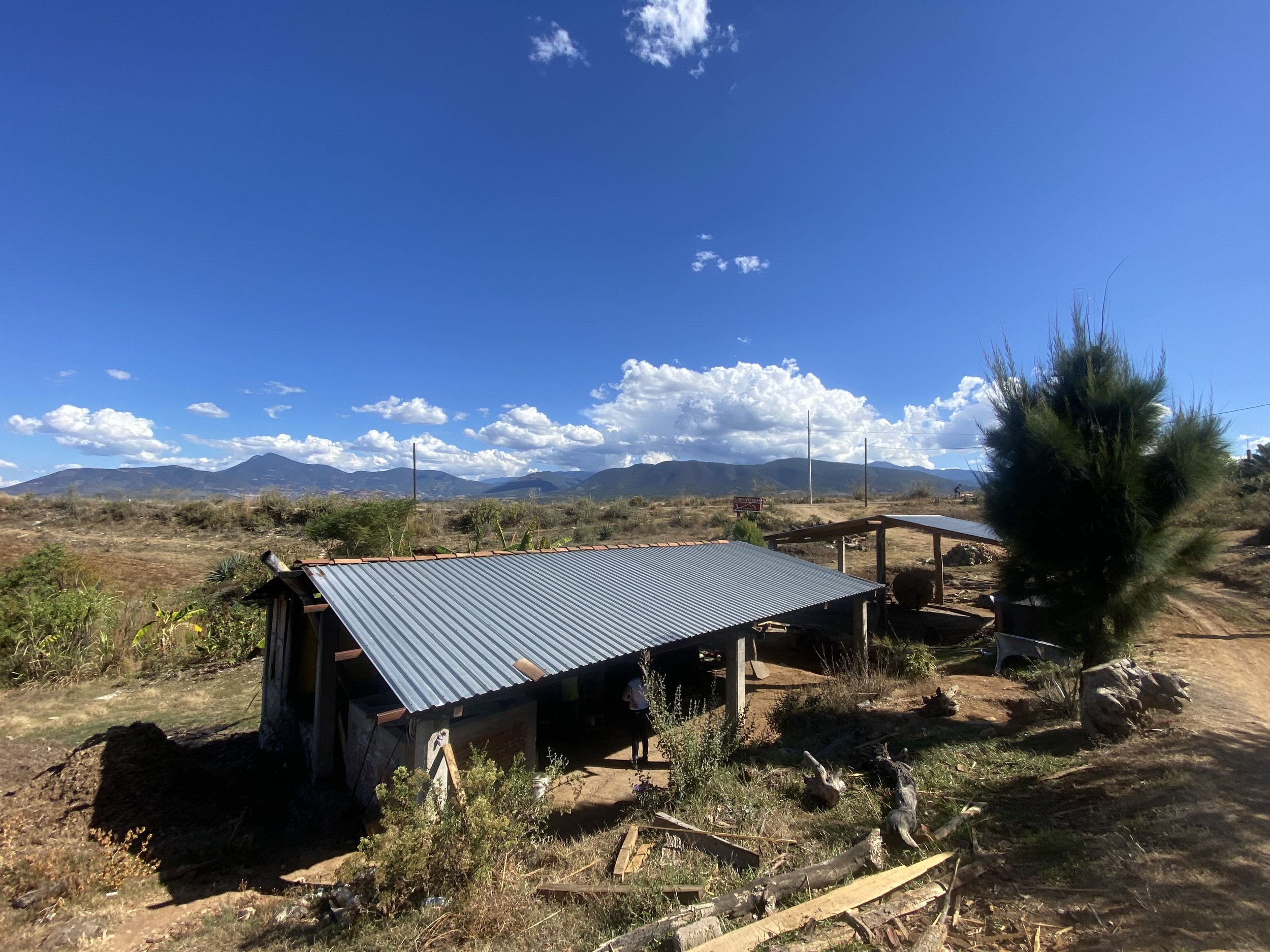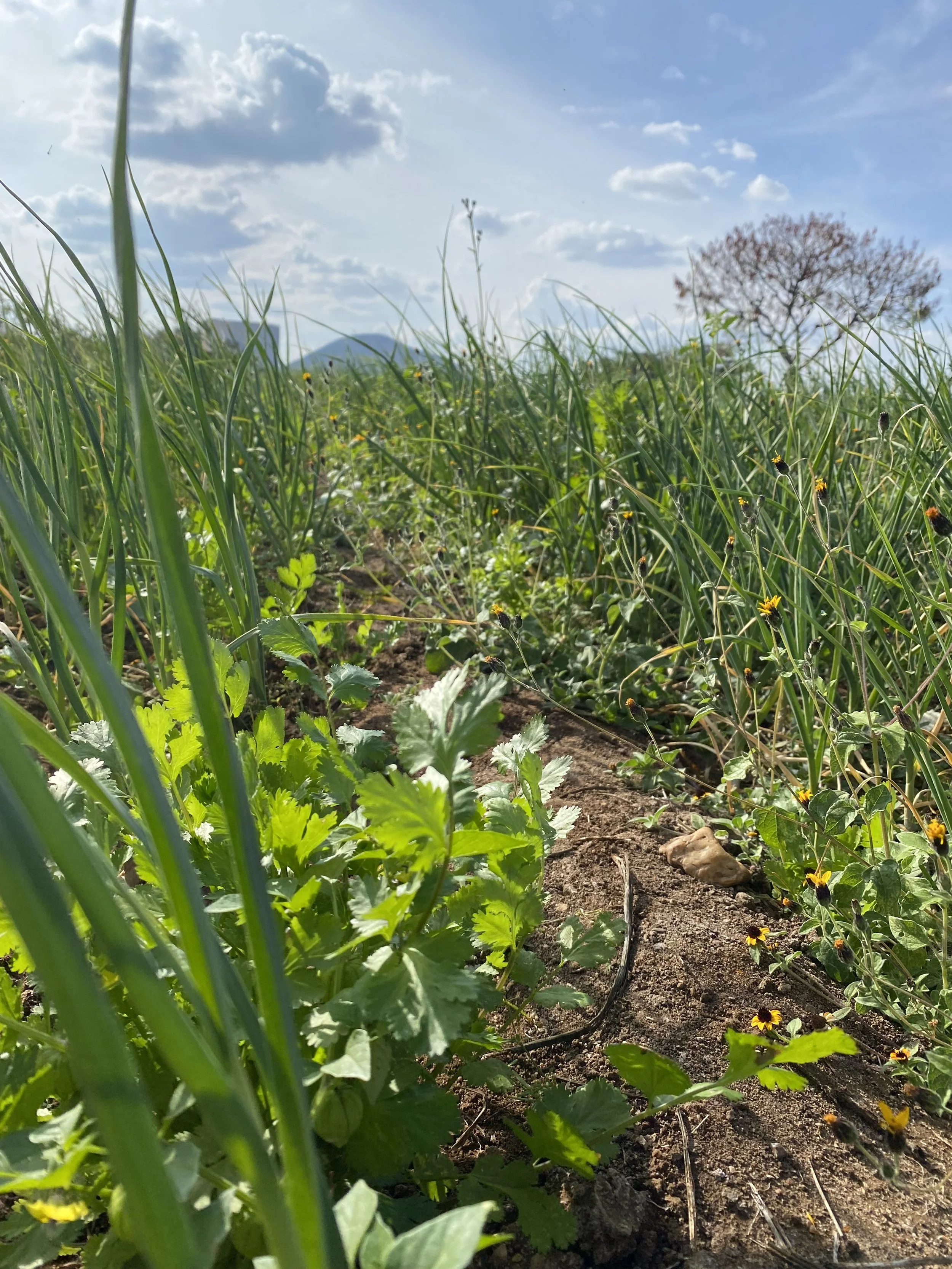We met Roman at his single-still palenque while in a back-road exploration in 2021. He and his family work exclusively with cultivates Espadín and wild Biquix.
Maguey Biquix (A Karwinski) is endemic to this region and grows wild throughout. Traditionally, it’s just as widely used for agave spirits in this region as the Espadín (A.Angustifolia). You might say it’s the quintessential maguey of Miahuatlán.
In fact, we commissioned some independent research as a deep dive into this agave from this region - read it here.
Biquix - also known locally as Cuishe, and in Santa Caterina minas and Ejutla as Tobaziche - grows tall and skinny, with the sugar-rich piña of the plant often only at the top of what otherwise just looks like a tree trunk.
Broadly speaking this means distilled Cuishe can be less sweet (and arguably more complex) than spirits made from its fatter cousins like the Madrecuishe and Barril. It tends to offer quite woody flavours.
The Bautista family palnenque
Roman’s dad, still working
The agave were roasted in the small traditional horno, before being cut to size by machete and fed through a wood chipper.
Harvested biquix waiting to roast
Fields of coriander & garlic
Crops grown by the family
A 5 day fermentation with well water followed before the agave were ultimately double passed through the palenque’s single copper alembic still. The final yield of this process was just 65 litres.
Gracias Roman
House tasting notes:
Nose: Incredibly vegetal. Like raw root vegetables and freshly dug and chopped potato, but with a background sweetness of fresh split resinous wood.
Palate: On first sip those vegetal, woody, and sweet tones combine in amazing harmony to create this absolute treat of a mezcal. Barely a hint of smoke, just wonderfully mineral and vegetal Miahuatlán biquix in a glass.
Finish: There’s something almost unreal about the finish on this one. Slate and stone blend with the extreme vegetal notes and kick out a kind of pick’n’mix sweetness.
This batch has been bottled exclusive for Luum, London.
For a copita, head to the bar.
Continue your agave spirits journey via the Mezcal Appreciation Society:













